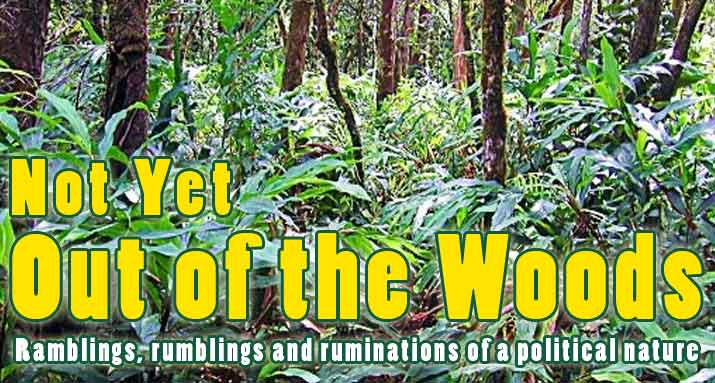All sorts of scare-stories surround a future Scottish referendum - from practical questions about the debt rating of an independent nation to more emotive fears of a new wave of Highland clearances.
Yet amidst all the manoeuvering by both the pro and anti-unionists seeking to define the framework under which the question will be answered (in particular whether it should be a straight in-out decision) the respective leaders at Westminster and Holyrood retain one glaring blindspot.
Scotsman columnist Bill Jamieson is entirely correct when identifying an "effective disenfranchisement which could undermine the referendum vote as envisaged," but perhaps not in exactly the way he intended.
According to the consultation paper on the draft referendum bill (pdf) regarding the mechanics of a vote, "eligibility to vote is based on that for Scottish Parliament and Scottish local government elections" - in other words normally-qualified and registered residents of Scotland will cast their ballots.
On this vital choice facing a nation, any Scots who take advantage of the British union to live in other parts of these isles will not have their voices heard - despite the unquestionable fact that they did so at least partly because a guarantee existed that their full political rights would be maintained. And that's before you even start to consider those who've taken advantage of the right to freedom of movement in our union with continental partners!
This not-insignificant number of people not only has the potential to change the outcome of a referendum, but could be more seriously affected by the most dramatic form of mooted constitutional change because of the potential effect on their ability to vote in parliamentary elections where they live, and therefore have a pointed interest in proceedings. Admittedly Irish citizens living on Merseyside, Anglesey or in Kent have a special exemption to vote in all UK elections, but this right is not reciprocated for Irish national elections and is by no means assured in the event of secession for citizens exiled across the northern border given persistent questions over the anomaly between citizenship and residence.
Just as not all people living in Scotland are Scots, not all Scots live in Scotland. In fact only 84% of Scottish-born people are resident in Scotland, and the remaining 16% will be excluded from expressing an opinion on the future of their birth-nation in any future referendum as things currently stand.
Of the c.800,000 Scots who live in other parts of the UK the largest group (over 1/4m) live in or around London and the smallest (24,387) live in Wales. We might well ask 'how do these groups feel about the advantages or disadvantages of Union?' So far nobody has, and until now it looks like nobody wants to.
So while we hear Scottish Nationalist leaders stubbornly fulminating that they 'will not be dictated to' by any English tories and we hear those same English tories privately gossiping with glee at the prospect of boosting their Westminster majority and prominent members of their number identifying with a rising tide of English nationalism in the Conservative party in order to further a different agenda, the rest of us might be forgiven for thinking the interests of both sides are aligned and there's been a secret stitch-up by these in-laws to arrange a divorce, even if or precisely because it excludes the very groups of people at the sharpest end of the deal.
Can Scottish independence give Scotland a real voice, if it is to be achieved by silencing Scots?
Current estimates put the total population of Scotland at 5.2m in 2011 (up 5.4% on the previous year), with maximum voter registration hovering about 4m (a rise of 1.5%). Meanwhile 1,991,051 people voted at the 2011 Scottish general election, representing a turnout of 50%, down from 51.8% in 2007 (historical stats can be found here), and spurring plans to add 3% to the electorate by lowering the age limit from 18 to 16.
Clearly there is a large and increasing body of scottish opinion going unrepresented. This creates a false balance which misrepresents Scots and reduces the legitimacy, credibility and sustainability of any decisions made in their name. Whichever way a referendum goes it should be because the full democratic rights of those concerned are respected, not in spite of them.
Whatever happens a rejigged mashup of the Hokey-Cokey cannot be on the cards.
-
This is an amended version of an original post which can be found here (it got mangled in the drafting process).

2 comments:
In politics everything is relative.
The SNP is the best of a bad bunch.
I'm not sure about that, they're definitiely helped by the fact that the media treats them with kid gloves.
Post a Comment